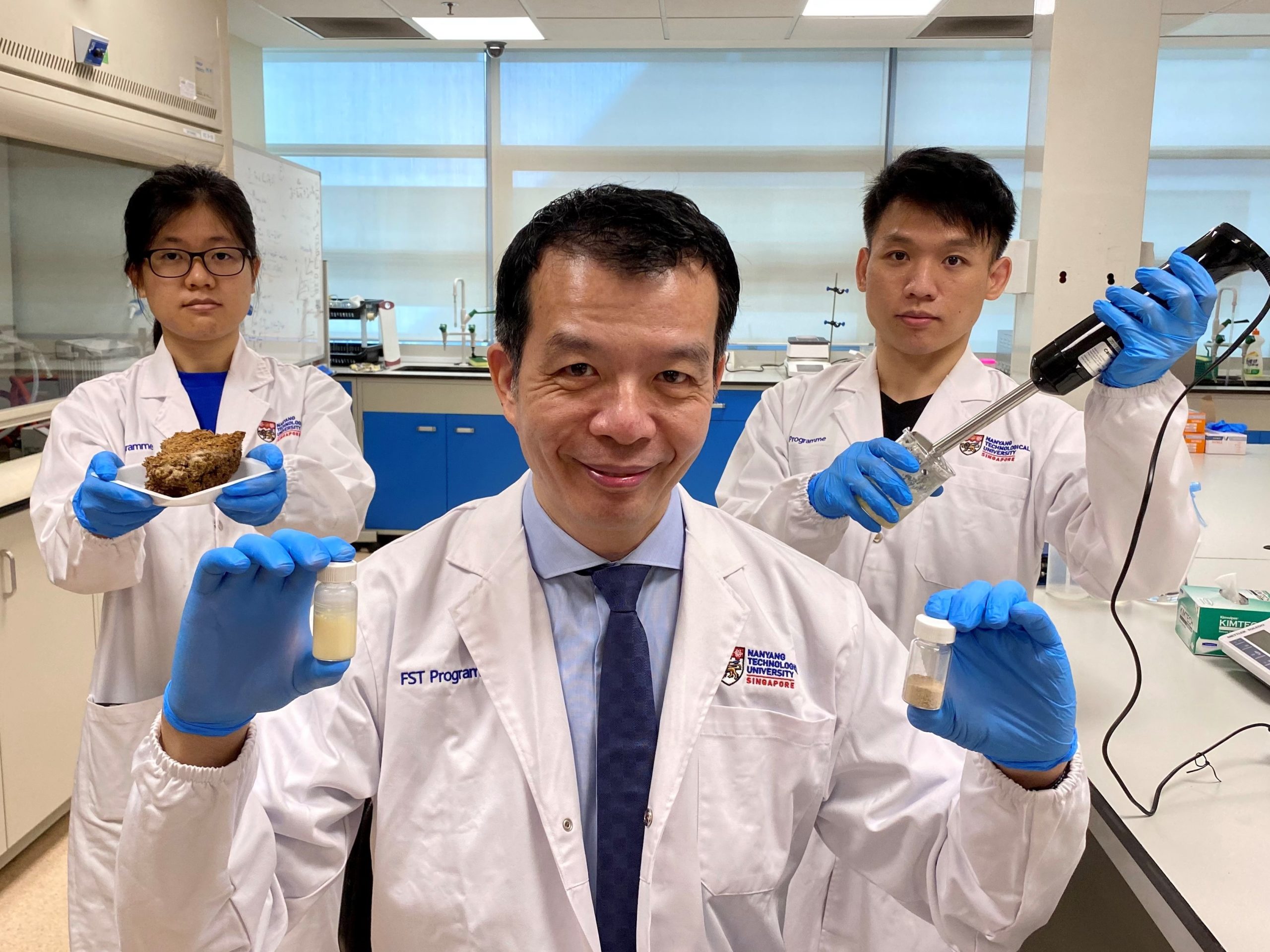Singapore Scientists Create Plant-Based Emulsifier To Supersede Eggs And Dairy
3 Mins Read
Nanyang Technological University, Singapore (NTU Singapore) has announced a plant-based breakthrough. A team of its scientists has successfully developed a protein and antioxidant-rich emulsifier. It is free from traditional eggs and dairy. Preliminary findings show it could replace animal products in relevant food products. Mayonnaise and whipped cream were given as examples.
The NTU emulsifier is being cited as food waste reclamation. It is made using spent brewing grain, the beer-making industry’s biggest byproduct. NTU estimates that 39 million tons of grains are added to landfill every year. During breakdown, they release greenhouse gas emissions and contribute to the ongoing climate crisis. The recent findings were published by NTU in peer-reviewed journal Food Chemistry: X.

A viable alternative
Emulsifiers are used throughout food production. They allow liquids to come together without separating. Traditionally, ingredients such as egg yolk have been used. NTU’s yeast-derived plant-based emulsifier offers sustainability benefits.
“Our plant-based emulsifier is yet another triumph for NTU, as we look to find successful ways to find new uses for products that would otherwise be left to waste,” said Professor William Chen, director of food science and technology director at NTU in a statement. “Each year, approximately 39 million tons of brewers’ spent grain is generated globally by the brewing industry and is sent to landfills. Upcycling this as a potential human food source is an opportunity for enhancing processing efficiency in the food supply chain, as well as potentially promoting a healthier plant-based protein alternative to enrich diets.”
The emulsifier is made by fermenting spent brewing grains. These are then processed further to extract and dry the proteins within. Once dried, they can be used in food manufacturing. Fungus provided a cost-effective and simple way to approach protein extraction, which is notoriously complex and subject to industrial processes. A variety used in tempeh production was selected.
NTU has experimented with its emulsifier, making mayonnaise as a starting point. Compared with shop-bought mayo, the NTU product contained more protein and certain amino acids. Fat and calories remained similar but the experimental version was shown to have more nutrients. NTU claims that its mayo tasted identical to conventional alternatives but that it spread and felt better.
Testing continues across a variety of food groups including milk and ice cream. Future partnerships with food and beverage partners will be sought, though wider applications are being cited. The spreadable nature of the emulsifier has led to hopes of pharmaceutical and cosmetic partnerships.

Turning landfill fodder into food
Spent grain is not widely used in food production yet, with difficult protein extraction floated as the reason. Grain is typically used as animal feed and solid fuel. There are some companies looking to add human nutritional value, just as NTU is.
It was recently announced that Budweiser parent company Anheuser-Busch InBev is working with EverGrain, in the U.S. to upcycle its glut of spent brewing grains. So far only barley milk has been produced but in the future, there are hopes for vegan eggs.
Prior to EverGrain, Dutch operation FUMI began using brewing yeast waste to develop vegan egg whites. It announced a collaborative project to progress its research earlier this year.
All images courtesy of Nanyang Technological University.





